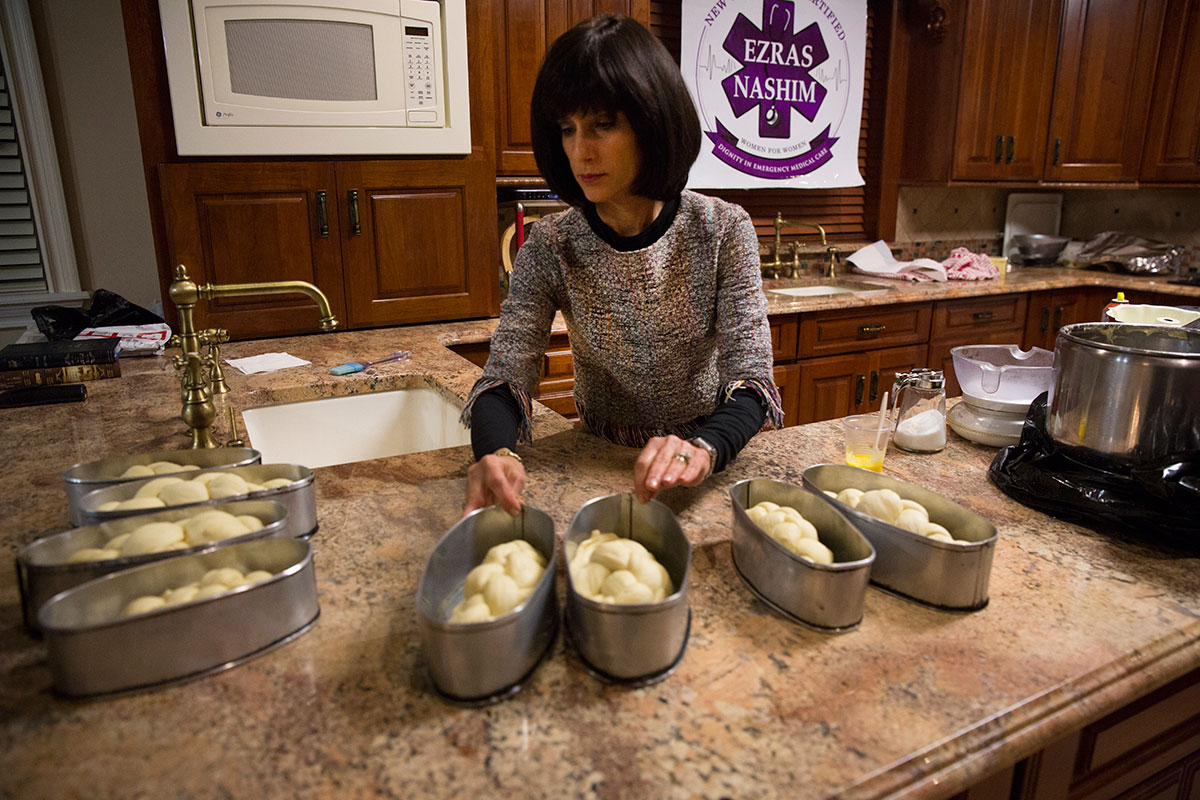Last spring, at a reception in downtown Toronto filled with maybe 200 people, Paula Eiselt wasn’t paying attention when someone announced that her documentary had won $75,000.
“I was flabbergasted,” the New York–based director says. She was in the city for a pitch competition held by Toronto’s Hot Docs Canadian International Documentary Festival, vying for prize money based on an airtight seven-minute pitch. Her competitors were filmmakers telling stories about underdog Somali basket players and the Central Asian slave trade, far-flung stories of human struggle in difficult lands.
In contrast, Eiselt’s film – 93QUEEN, which follows a group of Hasidic women in Borough Park as they kickstart their own volunteer-run ambulance corps called Ezras Nashim – felt smaller, she thought.
So it shocked her when she was chatting away and heard her movie’s name announced as the first-place winner. “We were just like, Oh my god, that’s us!” she tells The CJN. “It was a crazy moment.”

Now, one year later, Eiselt is back in the city for the world premiére of 93QUEEN at the 25th Hot Docs festival. The film debuted to a sold-out audience on April 29, and will screen twice more during the festival – on May 1 and May 6 – while Eiselt is currently negotiating a wider North American release for the fall.
The film details the consistent struggle to establish an important community service. Borough Park is dominantly ultra-Orthodox, and most women in that community have never so much as held hands with a man who is not their husband. When a group of strange men show up to deliver her baby for the first time, for example, it can be a traumatic experience.
The male community leaders, on the other hand, refuse to accept women as belonging anywhere but in their homes. In particular, they see the women’s group’s leader – Rachel “Ruchie” Freier, a local ultra-Orthodox real estate lawyer – as some kind of secret feminist interloper bent on destroying their way of life.
It’s a title she has to fight against. The film’s most fascinating moments come when Freier publicly disowns the “feminist” label, even as she crusades for women’s rights to safety and freedom of choice in her community.
“Feminism is a secular concept,” Freier says in a radio interview during the film. “If you have a life that’s filled with Torah values, you don’t need feminism.”
When Eiselt first heard about Freier’s story more than six years ago, she wanted desperately to document it on camera. But Freier was reluctant – getting an inside look at the Hasidic community is notoriously difficult, and access would require trust. Eiselt, who is modern Orthodox, spent months corresponding with Freier before she was allowed in.
“I knew how hard it was to get access to this community, but I felt like no matter what, it was going to happen,” she says. “Once Ruchie came on, I felt that it would happen.”
READ: EXPLORING THE JEWISH WORLD AT HOT DOCS
But while the pushback against Freier’s EMT project was vitriolic, the hurdles thrown at Eiselt herself – a woman making a movie about trailblazing Hasidic women – were almost as bad.
“It’s been hard,” Eiselt acknowledges. Men sent her angry messages, even threats, just like the kinds they send Freier in the film. Some women who wanted to participate in the film could not, because their husbands didn’t agree to it. (Appearing on film is considered immodest for ultra-Orthodox women.)
But Eiselt is conscious of their beliefs, and steers the film – and surrounding conversation – away from targeting men and toward a positive change for Hasidic women.
“It’s not just about how the men react to women’s empowerment, but how the women react to it internally,” she explains. “Doing something like this, that is controversial, undoubtedly, is not easy and it’s really hard for people. It’s not an easy ride.”
